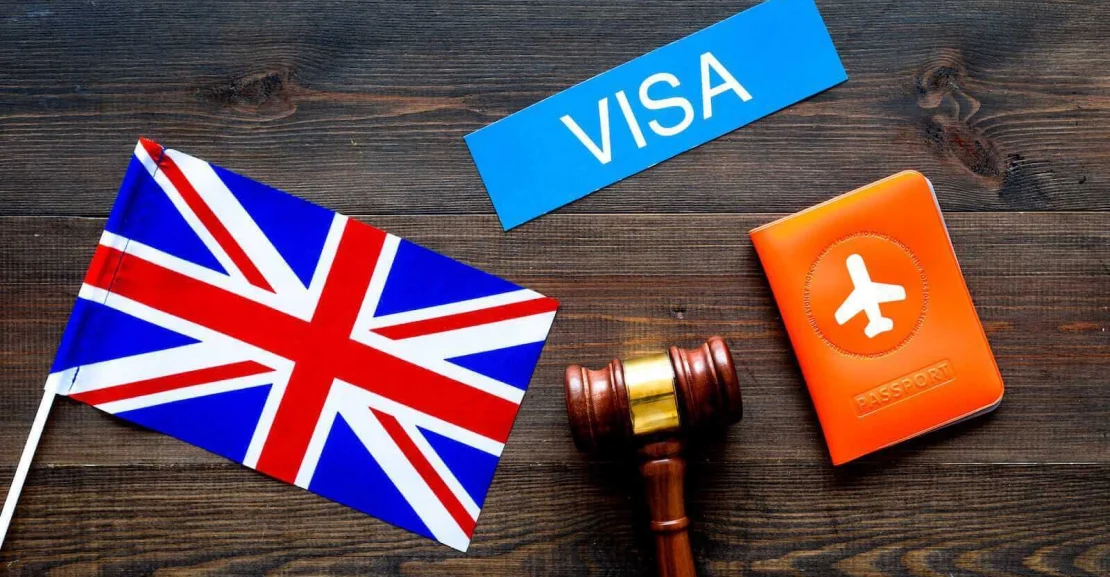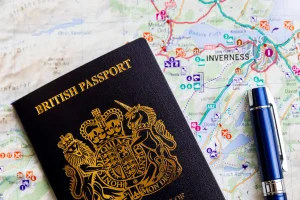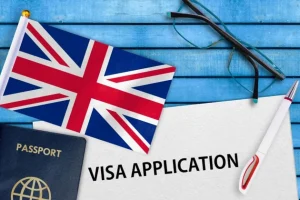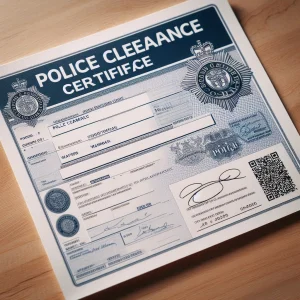How much is a police report for a visa? Applying for a visa can be a thrilling yet nerve-racking experience. Whether you are travelling for work, study, or migration, one document that often crops up during the application process is the police report—also known as a police clearance certificate or criminal record check. But one of the most common questions visa applicants ask is: How much does a police report for a visa cost?
The answer varies depending on the country you live in, the type of visa you’re applying for, and how quickly you need the document. To help you navigate this requirement confidently, let’s explore everything you need to know about police reports for visa purposes—their importance, cost range, processing time, and how to apply.
It is important that we state at this point that a police report is sometimes called a police clearance certificate (PCC). It is an official document issued by your local or national police authority confirming whether or not you have a criminal record.
Immigration authorities and foreign embassies use it to assess your character and ensure you have no criminal background that could pose a risk to public safety in their country.
In essence, it’s a record of your good conduct. For visa applicants, it’s often required when applying for long-term stays such as work visas, permanent residency, or student visas. Even some short-term visas may request it if you plan to work with vulnerable populations, such as children or the elderly.
However, why do embassies demand it?
How Much Is a Police Report for a Visa, and Why Do Embassies Request Police Reports?
Every country wants to ensure that people entering their borders are law-abiding. A police report provides that reassurance. It allows immigration officials to verify your history and determine whether you meet the character requirements of their visa policy.
For instance, the UK, Canada, Australia, and New Zealand all require police clearance certificates for applicants seeking work or settlement visas. Similarly, the United States may request a police report from any country you’ve lived in for six months or longer after the age of sixteen.
In short, the police report plays a critical role in proving your trustworthiness and eligibility for a visa.
How Much Does a Police Report for a Visa Cost?
The cost of obtaining a police report for a visa depends largely on where you are applying from. There’s no fixed international fee—each country sets its own price based on administrative expenses, processing systems, and delivery options.
Here’s a general idea of what to expect:
-
Nigeria: The Nigerian Police Force issues police character certificates for visa or immigration purposes, usually costing between ₦5,000 and ₦10,000 if processed directly at the Force Criminal Investigation Department (FCID) in Alagbon, Lagos. However, applicants who use online agents or expedited services may pay up to ₦20,000–₦30,000.
-
United Kingdom: In the UK, applicants can obtain an ACRO Police Certificate, which costs £55 for standard service (taking about 10 working days) or £95 for premium service (processed within 2 working days).
-
United States: American citizens can request an FBI Identity History Summary Check for $18 if submitted online. Third-party channelers may charge extra for faster service.
-
India: The Police Clearance Certificate issued by the Passport Office costs ₹500, though additional courier or biometric fees may apply.
-
Philippines: The National Bureau of Investigation (NBI) charges around ₱130–₱170, depending on whether the report is for local or international use.
As a general rule, expect to pay between $10 and $100 globally for a standard police report. Fees can increase for express services, courier delivery, or embassy authentication.
Factors That Influence the Cost of a Police Report
Several factors can affect how much you’ll pay for your police report. These include:
-
Country of Application: Developed nations often charge higher administrative fees than developing countries due to more advanced background-check systems.
-
Processing Speed: Standard services are cheaper, but if you need your report urgently, you may need to pay a premium for express processing.
-
Delivery Method: Some agencies offer email or digital downloads for free, while others charge extra for hard-copy delivery or international postage.
-
Verification and Authentication: Certain visa applications require your police report to be notarized, apostilled, or authenticated by the Ministry of Foreign Affairs, adding extra cost.
-
Number of Certificates: If you’ve lived in multiple cities or countries, you may need to apply for more than one police clearance, which multiplies the total cost.
READ ALSO:
How to Apply for a Police Report for Visa Purposes
While procedures differ across countries, the general process follows a similar pattern:
-
Confirm Visa Requirements: Check the embassy’s website or visa checklist to see if a police report is needed, and from which country or jurisdiction.
-
Visit the Appropriate Office: Depending on your country, this could be the national police headquarters, passport office, or an online government portal.
-
Provide Identification: You’ll typically need a valid passport, national ID, or residence permit. Some countries also require passport photographs or fingerprints.
-
Pay the Fee: Payment can usually be made via bank draft, online transfer, or in person at designated offices.
-
Wait for Processing: Standard processing may take from a few days to several weeks, depending on demand and background-check complexity.
-
Collect or Receive the Report: Once ready, you can either pick it up in person or have it sent to you by post or email.
How Long Is a Police Report Valid for Visa Applications?
Most embassies and consulates require that your police clearance certificate be issued within the last six months before submission. Some may accept older reports if you have not lived in another country since it was issued. However, it’s best to check with the specific embassy to avoid delays.
If your visa application process drags on or you move to a new country, you may be asked to obtain a fresh certificate.
Tips to Save Time and Money
-
Apply early: Start the process at least one to two months before submitting your visa application.
-
Use official channels: Avoid unauthorized agents who may overcharge or provide invalid certificates.
-
Request electronic delivery: Some authorities issue digital versions that are faster and cheaper than physical copies.
-
Double-check requirements: Ensure the certificate meets the exact format, language, and authentication standards required by the embassy.
The cost of a police report for a visa may seem like a minor detail, but it’s a crucial part of your immigration journey. Prices vary widely—ranging from a few dollars to over a hundred—depending on where and how you apply. What truly matters is ensuring that your report is authentic, up-to-date, and properly attested if required.
A small investment in securing this document can save you from costly visa rejections or delays later on. So before submitting your next visa application, set aside time and budget for your police report—it’s not just a formality; it’s your proof of integrity on the global stage.




